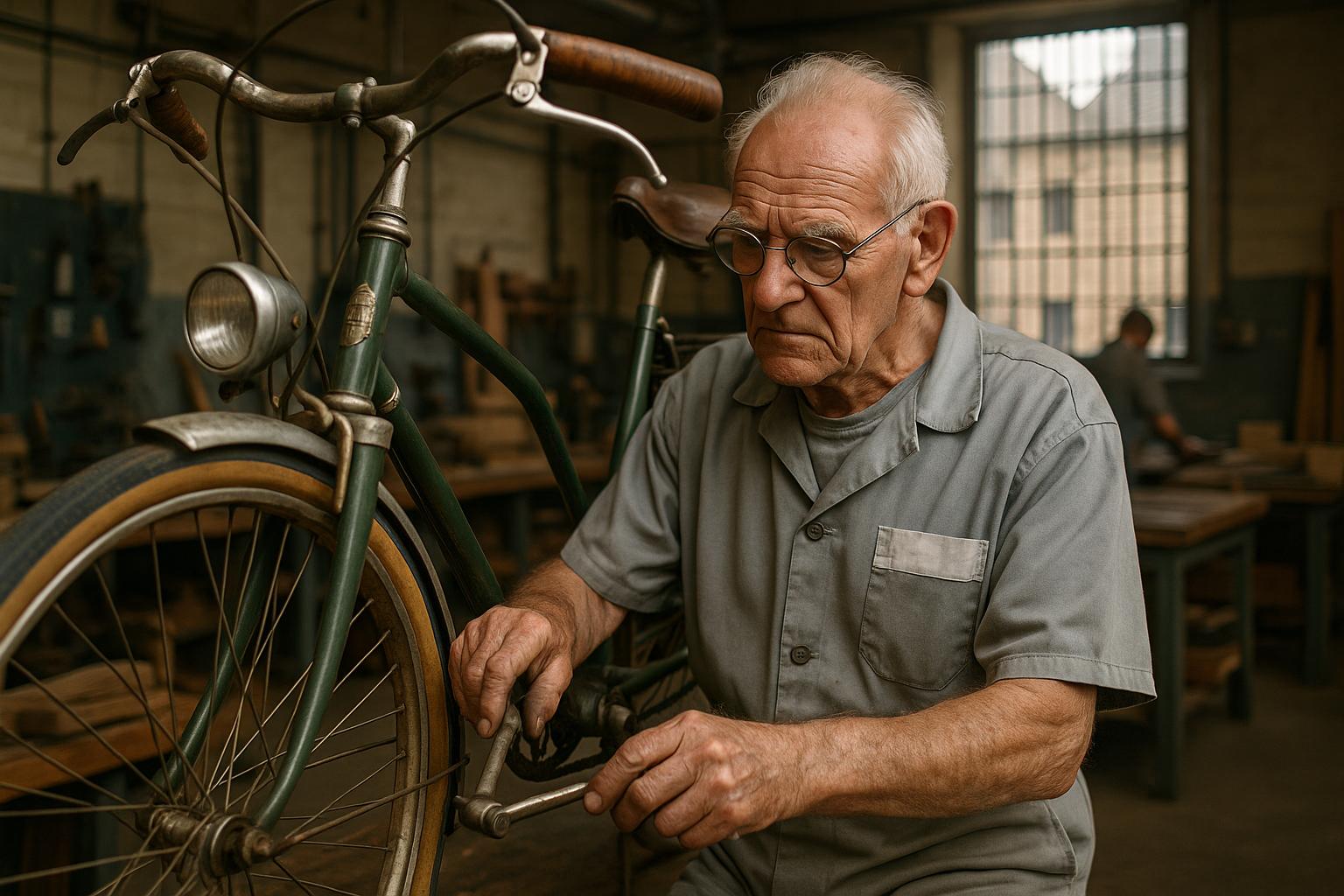Bicycle repair and reuse programmes in the UK are generating significant economic, environmental, and social benefits, according to an analysis by FCC Environment. Their white paper, Bikes: A Vehicle of Opportunity, combines internal operational data and external studies to quantify the value of these initiatives. FCC reports that its network—including workshops in prisons and communities—has refurbished 2,424 bicycles, diverting 35 tonnes of waste from landfill and preventing approximately 345 tonnes of CO₂ equivalent emissions.
This resurgence in refurbishment coincides with a sharp decline in new bicycle sales, which dropped to about 1.45 million units in 2024 from a pandemic peak of over 3 million during 2020-2021, according to industry data cited by FCC. However, demand for repair services is rising: The Bicycle Association noted a 7 percent increase in workshop volumes and a 5 percent growth in turnover in 2024, with many independent bike shops reporting even stronger revenue growth between 10 and 50 percent. This shift has also highlighted workforce challenges, as 13-15 percent of UK bike businesses report shortages of trained mechanics.
Central to FCC’s efforts are its workshops operating within nine prisons across seven local authorities, engaging around 100 prisoners in skills training and bicycle refurbishment. These prison programmes have generated £119,000 in recorded social value to date. Research referenced by FCC from the City & Guilds Foundation suggests that each prison skills qualification can save taxpayers an estimated £34,000 per year by reducing reoffending and associated social costs. Complementing these findings, the Wigan Cycle Project—a partnership between Wigan Council, the charity Rebuild with Hope, and FCC—has reported a zero percent reoffending rate among its 24 participants since 2022, in stark contrast to the national average reoffending rate of 65 percent. This project refurbished over 300 bicycles between late 2024 and mid-2025, diverting nearly 7 tonnes of material from landfill.
Mark Harrison, Director of the Wigan Cycle Project, emphasised that the collaboration "unlocked capacity to get bikes to people who really need them, while passing on new skills and prospects to prisoners preparing for release." This highlights the multifaceted benefits of bicycle refurbishment initiatives: addressing environmental concerns, reducing waste, while also fostering social inclusion and supporting rehabilitation.
From an environmental perspective, FCC points out that the bulk of a bicycle’s carbon footprint arises from manufacturing: producing a new steel-frame bike creates roughly 96 kilograms of CO₂, with aluminium frames generating more than double that figure. Refurbishing existing bikes conserves this embodied carbon by requiring minimal energy compared to manufacturing new ones or recycling raw materials. Disposal data also suggests a substantial supply of bicycles available for repair and reuse. For example, the North London Waste Authority estimates that over 11,000 bicycles are discarded annually in the UK, while a Transport for London study identified almost 27,500 potentially discarded bikes in London alone.
Economic analyses cited in the report further reinforce the value of repair programmes. Sustrans modelling estimates that a nationwide voucher scheme covering 40 percent of low-income individuals would cost about £18 million per year but yield £60 million in societal benefits. Additionally, Cycling UK's Big Bike Revival programme has documented £4.30 in health and productivity returns for every £1 invested. A Lancet study further concluded that increasing active travel in England and Wales could save the NHS £17 billion over two decades.
Policy discussions in the FCC report highlight how regulatory frameworks like right-to-repair laws for household appliances could be adapted to support the bicycle repair sector. Such measures could provide funding stability and clarify obligations, helping to sustain and scale repair initiatives.
Gemma Green, Reuse Development Manager at FCC Environment, states that bicycle repair and reuse programmes “can address multiple challenges simultaneously – from waste prevention and skills shortages to public health and social inclusion.” This view aligns with other UK initiatives like Recycle Your Cycle—a programme that refurbishes abandoned bikes through prisoner training, raising funds for charity while diverting thousands of bikes from landfill since 2015. Similar programmes by organisations such as UpCycle, Bikes Beyond Bars, and the Lifecycle Project provide prisoners with Cytech qualifications and meaningful work, supporting their reintegration and lowering reoffending rates.
Locally, FCC’s collaboration with Wigan Council and Rebuild with Hope has resulted in over 500 refurbished bikes available at affordable prices, contributing to waste reduction and creating employment opportunities for ex-offenders. Meanwhile, Cycling UK’s Big Bike Revival offers free maintenance workshops and cycling activities to promote sustainable transport and health benefits.
Together, these programmes create a compelling model where environmental sustainability, social rehabilitation, economic savings, and public health improvements are mutually reinforced through bicycle reuse and repair schemes. By combining practical training with community engagement, they represent a promising route towards reducing waste, cutting carbon emissions, and facilitating offender reintegration—underscoring bicycles as not merely transport tools but vehicles of opportunity.
📌 Reference Map:
- Paragraph 1 – [1] (Resource.co)
- Paragraph 2 – [1] (Resource.co)
- Paragraph 3 – [1] (Resource.co)
- Paragraph 4 – [1] (Resource.co), [3] (FCC Environment)
- Paragraph 5 – [1] (Resource.co)
- Paragraph 6 – [1] (Resource.co)
- Paragraph 7 – [1] (Resource.co)
- Paragraph 8 – [1] (Resource.co), [2] (Recycle Your Cycle), [5] (UpCycle), [6] (Bikes Beyond Bars), [7] (Lifecycle Project)
- Paragraph 9 – [3] (FCC Environment), [4] (Cycling UK Big Bike Revival), [1] (Resource.co)
Source: Noah Wire Services
